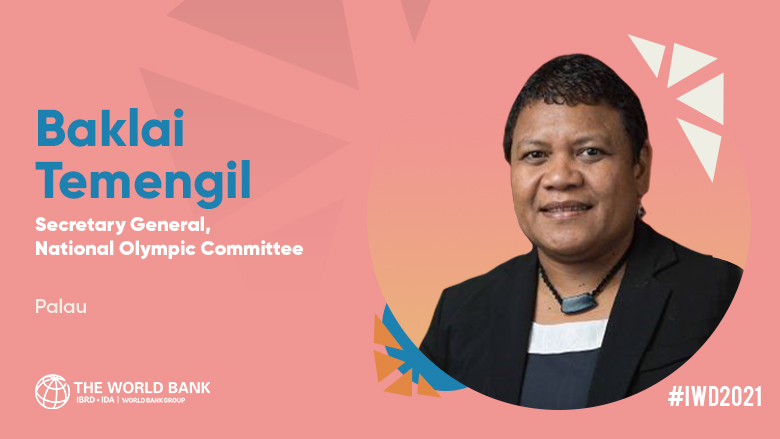How did you become involved with Palau’s Olympic Committee?
I began working at a very young age, when I was 13, with the President of the Senate of Palau, who was my uncle. I went to College in California and then I had the opportunity to work in the Palau Liaison Office in Washington DC during the time of negotiations with the United States to gain our independence, which happened in 1994.
When I returned home a year later, I worked for the Vice President at the time, Thomas Remengesau Jr. until 1997. I worked with him to activate sports in youth development in Palau and to submit our application to join the International Olympic Committee, which was officially granted in 1999.
Palau participated in our first Olympic Games in Sydney in 2000, and in 2001 I was elected to the Palau National Olympic Committee as Secretary General. Palau has hosted two Micronesian Games in 1998 and 2010, and one Pacific Mini Games in 2005. We will be hosting the Pacific Mini Games in 2025.
During my seven-year term as Palau’s Minister for Community and Cultural Affairs (2013-2020), I remained Secretary General of the committee, and as the Ministry was also involved in youth development and sports, I was able to wear both hats.
Why do you think sport is important to development in Palau and the Pacific?
Sport is already embedded in communities in the Pacific Islands. It's something that starts with local community games and then moves to more formal settings. Sport is embedded in Palau’s country values and principles, and it's such a great platform and catalyst that we can use for development in our communities, particularly with our youth.
A spillover in sport is that it brings communities together, regardless of age or gender. Of course, there's always boys’ and girls’ games, but sport is more integrated and inclusive now. It’s also a great platform for health outcomes, especially during this time of COVID-19. We have to make sure that our youth are healthy, and healthy citizens provide a better community overall.
How has your work with the National Olympic Committee been impacted by the pandemic?
Palau has been very blessed to continue to be COVID-free and there are a lot of activities going on now, such as schools being open. But, like the rest of the world, we did put a halt to most things in early 2020, and we can’t travel. It’s really impacted competition opportunities for our young athletes.
But it has also allowed us to be really innovative in the ways we inspire others and encourage each other. There are so many ways to gather and meet online. We are 20,000 people across 300 islands so we were already isolated but meeting online allows us to meet in comfortable environments: in our homes and not in our offices. There are more people opening up and speaking up because they are in a comfortable space rather than in a big meeting or conference room. I think online platforms have provided closeness in terms of communications and allowed us to be there for one another.
This year's IWD theme is 'Women in Leadership'. Is there a female leader that inspires you?
There are so many women in the Pacific that inspire me, and so many women in Palau. The Minister of Community and Cultural Affairs before me, Faustina Rehuher-Marugg, and the late Senator Katharine Kesolei, are both big inspirations to me. So many women continue to inspire younger women to lead and be the best they can be in their community. Many women and athletes in the Olympic movement raise their voices to encourage others to drive forward and be involved.
What does good leadership mean to you?
It means being there all the time, and having the time to listen, not just to other leaders, but to people in the community. Leaders must act. If you make a mistake, you can learn from it, accept responsibility and then move on and not be afraid.
What advice would you give Pacific women in 2021?
Don't be afraid. Take a step. There are so many great things to see outside your comfort zone. Just make a change, continue to raise your voice and move forward.
Follow World Bank Pacific on Facebook to make sure you don’t miss any of our Pacific Women in Leadership series.
**The views expressed in this interview do not necessarily represent the views of the World Bank Group and its employees.

